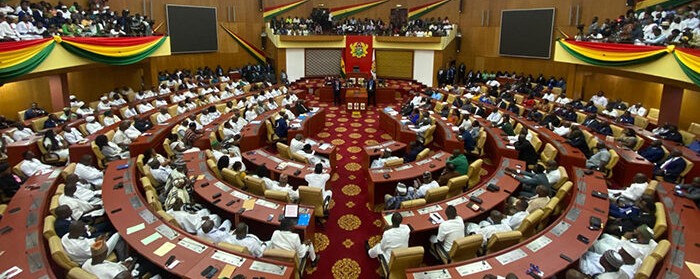(3 Minutes Read)
Ghana’s Parliament has approved the Gold Board (GoldBod) Bill 2025, marking a crucial step toward reforming the nation’s gold trade and enhancing foreign exchange stability. The legislation establishes a new regulatory authority to manage transactions in the gold industry, addressing persistent issues like smuggling, revenue loss, and inefficiencies in the value chain.
Once it receives presidential approval, GoldBod will become the exclusive authorised buyer of gold from legal small-scale miners. This initiative aims to reduce illegal activities, improve traceability, and formalise the artisanal mining sector. By centralising gold purchases and sales, the plan will help Ghana retain a larger share of its gold revenue, minimise capital flight, and strengthen the country’s fiscal health.
Finance Minister Cassiel Ato Forson emphasised the reform’s broader implications, stating it seeks to integrate the entire gold value chain, from extraction and refining to value addition and international marketing. This regulatory change aligns with the government’s strategy to fully exploit Ghana’s natural resources, creating jobs and increasing state revenues.
As one of Africa’s top gold producers, Ghana extracted about four million ounces of gold in 2023. However, the country has faced challenges with fluctuating foreign exchange reserves due to unregulated gold transactions and global price volatility. The creation of GoldBod aims to address these issues by establishing a transparent and efficient gold trading system.
The initiative also seeks to formalise small-scale mining operations, ensuring artisanal miners receive fair market prices while contributing to national economic growth. Enhanced oversight of exports will boost Ghana’s reputation as a responsible participant in the international gold market.
The passage of this bill reflects Ghana’s broader economic agenda to leverage its mineral resources for a more sustainable financial system. Given that gold is a significant contributor to the country’s export earnings, establishing a dedicated regulatory body is expected to stabilise the currency, decrease reliance on external financial support, and strengthen investor confidence.
Read Also;
https://trendsnafrica.com/ghana-suspends-gold-for-oil-scheme/
International stakeholders are likely to closely observe the impact of GoldBod, especially amid ongoing global efforts to enhance supply chain transparency in the gold sector. Ghana’s initiative aligns with similar regulatory approaches taken by other mineral-rich countries aiming to improve local beneficiation and reduce resource mismanagement.
The effective implementation of the GoldBod framework could serve as a model for other African nations seeking to optimise their natural resource governance. However, its success will hinge on strong enforcement, transparency, and collaboration among stakeholders to ensure long-term economic benefits.





